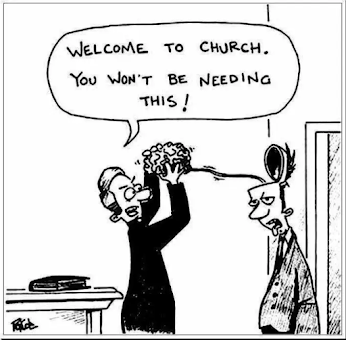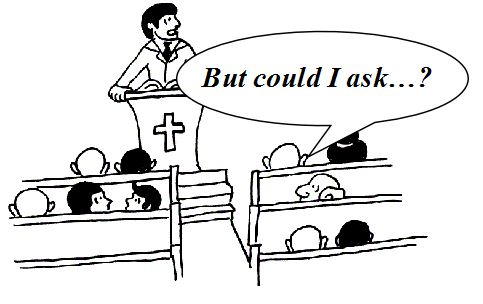The following signs can help you recognize when a pattern of enabling behavior may have developed.
1. Ignoring or tolerating problematic behavior
Even if you personally disagree with a loved one’s behavior, you might ignore it for any number of reasons.
If you believe your loved one is looking for attention, you might hope ignoring the behavior will remove their incentive to continue.
You might avoid talking about it because you’re afraid of acknowledging the problem. You or your loved one may not have accepted there’s a problem. You might even be afraid of what your loved one will say or do if you challenge the behavior.
(NOTE: Until the Board no longer cares what David C Pack's reactions will be, the foolishness will continue and eventually destroy RCG. I know, I say that like it's a bad thing :)
2. Providing financial assistance
There’s often no harm in helping out a loved one financially from time to time if your personal finances allow for it. But if they tend to use money recklessly, impulsively, or on things that could cause harm, regularly giving them money can enable this behavior.
(NOTE: Concerning RCG and David C Pack, this would be in letting the practice of Common and the original "Clarion Call" to "send it in" a pass as normal giving as one is able, not demanded.)
Financially enabling a loved one can have particularly damaging consequences if they struggle with addiction or alcohol misuse.
(NOTE: Or it can enable the offender, in this case DCP to demand more without question or consequences.)
3. Covering for them or making excuses
When worried about the consequences of a loved one’s actions, it’s only natural to want to help them out by protecting them from those consequences.
It’s tempting to make excuses for your loved one to other family members or friends when you worry other people will judge them harshly or negatively. But this won’t help your loved one change.
(NOTE: "Even the New Testament Apostles made mistakes in prophecy. But they were still God's chosen Apostles")
But your actions can give your loved one the message that there’s nothing wrong with their behavior — that you’ll keep covering for them.
(NOTE: This is what the RCG "Board" does every time, almost weekly, by not reminding David C Pack just how mistaken he is and often and perhaps he could move on to something else if he expects the church to survive.)
4. Taking on more than your share of responsibilities
You might be enabling a loved one if you find yourself frequently picking up their slack: doing household chores, looking after their children, or taking care of essential daily activities they leave undone.
There’s a difference between supporting someone and enabling them...
But if your help allows your loved one to have an easier time continuing a problematic pattern of behavior, you may be enabling them.
(NOTE: Showing up week after week at services, "sending it in" and not questioning David C Pack about all his mistaken predictions and title taking makes it easy peasy to do it all again next week.)
5. Avoiding the issue
Whether your loved one continues to drink to the point of blacking out or regularly takes money out of your wallet, your first instinct might be to confront them. You want the behavior to stop.
But after thinking about it, you may begin to worry about their reaction. You might decide it’s better just to ignore the behavior or hide your money.
It’s often frightening to think about bringing up serious issues like addiction once you’ve realized there’s a problem. This can be particularly challenging if you already tend to find arguments or conflict difficult.
But avoiding discussion prevents you from bringing attention to the problem and helping your loved one address it in a healthy, positive way.
(NOTE: Thus, it is a sure thing that some, even in ministry and perhaps even on the board are withholding or cutting back a bit on giving and saving more in fear that RCG will implode, and they will need to move on. Yet not address the problem causing them to do so.)
6. Brushing things off
People dealing with addiction or other patterns of problematic behavior often say or do hurtful or abusive things. They might insult you, belittle you, break or steal your belongings, or physically harm you.
You might tell yourself this behavior isn’t so bad or convince yourself they wouldn’t do those things if not for addiction.
But the reason for the behavior doesn’t really matter. If the behavior causes harm, it causes harm. Minimizing the issue implies to your loved one that they can continue to treat you similarly with no consequences.
By pretending what they do doesn’t affect you, you give the message they aren’t doing anything problematic.
(NOTE: David C Pack's delusional beliefs, expectations of loyalty and false predictions are not to be ignored or diminished in the harm they bring to all who come in contact with RCG and DCP. Including the children.)
7. Denying the problem
It can be hard to admit a loved one needs help. They could say they’ve only tried drugs once or twice but don’t use them regularly. They might also ask if you think they have a problem. You reassure them you aren’t concerned, that they don’t drink that much, or otherwise deny there’s an issue.
You may choose to believe them or agree without really believing them. You might even insist to other family or friends that everything’s fine while struggling to accept this version of truth for yourself.
But by not acknowledging the problem, you can encourage it, even if you really want it to stop. Denying the issue can create challenges for you and your loved one.
It isolates you both, for one. It also makes it harder for your loved one to ask for help, even if they know they need help to change.
(NOTE: "Maybe next week Dave will get it right... This is still God's true Church.)
8. Sacrificing or struggling to recognize your own needs
Missing out on things you want or need for yourself because you’re so involved with taking care of a loved one can also be a sign you’re enabling that person.
Do you struggle financially after giving your loved one money? Do you lack time for your work, self-care, or other relationships since you’re doing more at home?
Sometimes we want to make sacrifices for the people we care about. This doesn’t always mean you’re enabling someone. The reason you’re letting your needs go unmet matters.
It’s certainly important to take care of yourself first, especially when taking care of a sick loved one, but you may not mind missing out on some of your typical activities for several days or a few weeks.
(NOTE: OR THE REST OF YOUR LIFE in RCG under DCP)
But if you’re consistently struggling to get things done or feel worn down by your attempts to take care of a loved one, it may help to consider your reasons for helping and the effect they’re having on your loved one. Does your sacrifice allow their behavior to continue?
(NOTE: YES)
But you also work full time and need the evenings to care for yourself. You’ve let this slip by the wayside. You figure it’s just a fact of life.
9. Not following through on consequences
If you state a consequence, it’s important to follow through. Not following through lets your loved one know nothing will happen when they keep doing the same thing. This can make it more likely they’ll continue to behave in the same way and keep taking advantage of your help.
(NOTE: To date, no consequences for David C Pack's mistaken and delusional prophetic failures have been issued by the Board or anyone on it.)
10. Not maintaining your stated boundaries
Healthy boundaries are important in any relationship. Some boundaries you might express to a loved one experiencing addiction, abuse, or another concern might include:
If you or your loved one crosses a boundary you’ve expressed and there are no consequences, they might keep crossing that boundary.
(NOTE: NO boundaries have been set, by the Board, on David C Pack that he need adhere to if he is to be allowed to continue as the soon to be announced surrogate of Christ.)
11. Feeling resentment
When a pattern of enabling characterizes a relationship, it’s fairly common for resentment, or feelings of anger and disappointment, to develop.
Your resentment may be directed more toward your loved one, toward the situation, both, or even yourself.
(NOTE: You'll find yourself kicking the dog at home, but never directed towards David C Pack, where it belongs.)
You might feel hurt and angry about spending so much time trying to help someone who doesn’t seem to appreciate you. You may feel obligated to continue helping even when you don’t want to.
Resentment can damage your emotional well-being, but it can also help you realize the situation may not be healthy.
(NOTE: So don't sit in Church or that meeting going along to get along or sitting down on the outside but standing up on the inside. Until how you feel on the inside and how you speak on the outside match, your stomach will hurt)
...and remember that when your head is telling you one thing (Mr. Pack is God's Apostle) and your stomach is telling you something else, (This is all bullshit), your head is lying to you...






